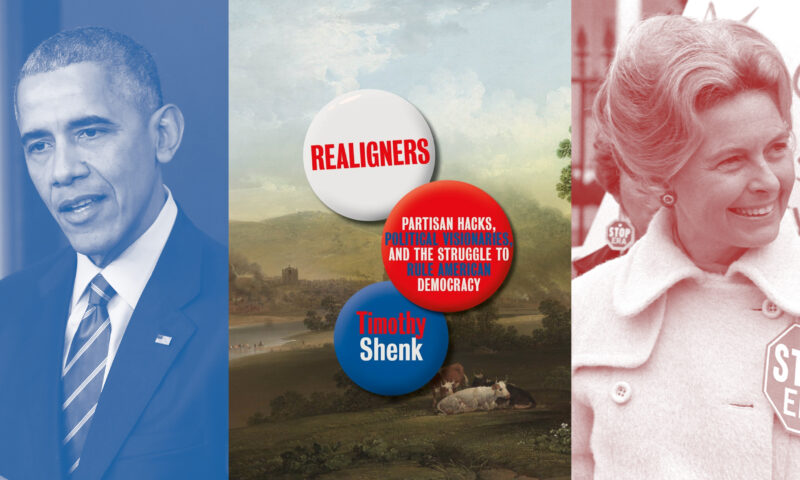

Historian Timothy Shenk talks about dynamic ‘realigners’ who combine passion, discipline and vision to mobilize masses.
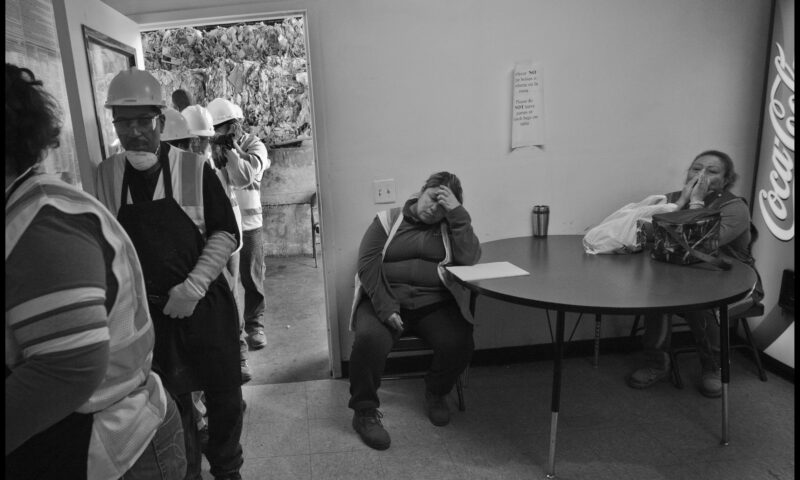

To do so, he will need to learn from the failures of Obama and Carter.
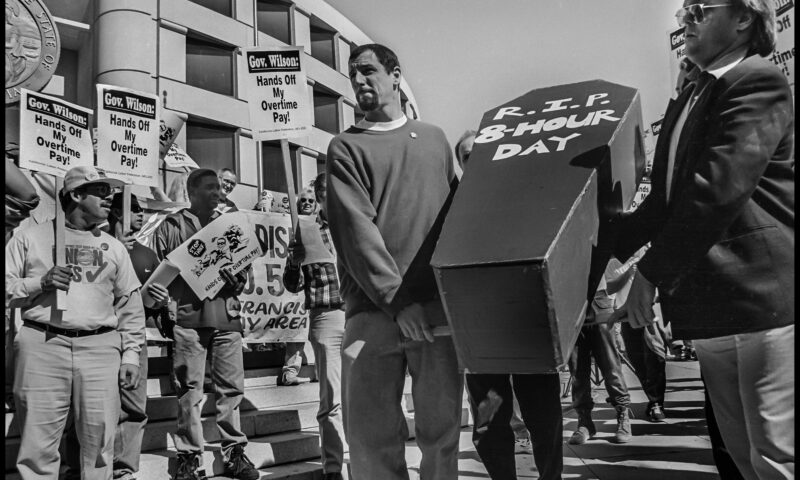
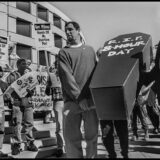
Many people work more than full time, but few earn extra money anymore. A labor-friendly president promises to change that.


Poorest households see real incomes drop in 13 states, have slower growth than under Obama in 36 states.


Seven immigrant children have died under the Trump administration’s zero-tolerance policies.
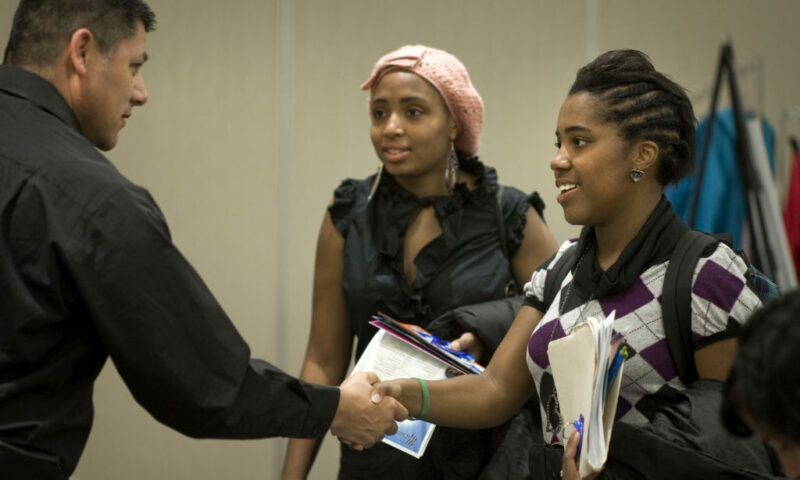

Co-published by The American Prospect
Erin Aubry Kaplan speaks with economist Steven Pitts about the president’s claim that he has reduced African-American unemployment to an historic low.
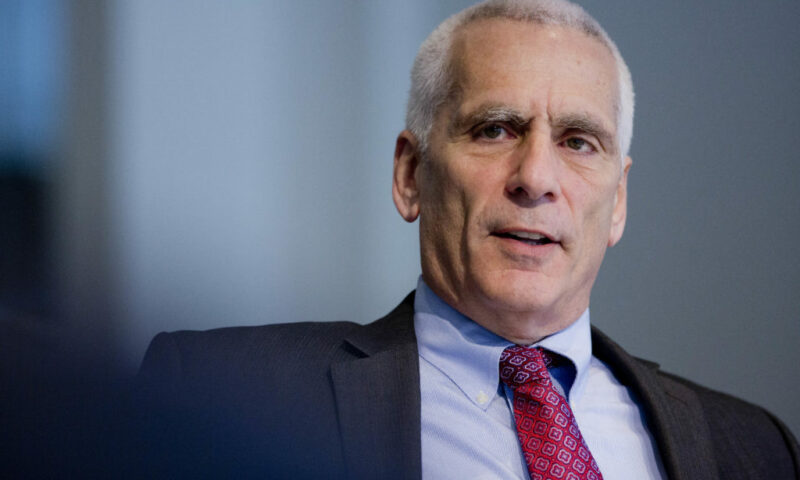
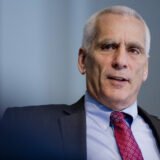
An interview about how rising income, persistent inequality and populist politics all fit together.


The future of an Obama-era rule to double the overtime salary threshold to $47,476 is uncertain under Donald Trump’s Labor Department.


Co-published by Fusion
How the language of division could spell disaster for immigrants in the era of Trump. BY LEIGHTON WOODHOUSE


Last month millions of undocumented immigrants were left in legal limbo when a divided U.S. Supreme Court let stand a lower court ruling that had blocked President Barack Obama’s executive action on immigration.


In books, blogs and newspaper pages, Los Angeles journalist and social critic Erin Aubry Kaplan has offered astute and unforgiving opinions about America’s race and class divides. (In 2005 she became the Los Angeles Times‘ first weekly black op-ed columnist.) In Black Talk, Blue Thoughts, and Walking the Color Line, the KCET website contributor gave this cool appraisal of the Rodney King beating trial’s fateful aftermath: “The riots had broken black issues out of a glass case where they had been visible, but coiled and silent.”
Her latest book, I Heart Obama, examines what America’s first black president has meant to African Americans, and to her personally. As Obama’s final term in office winds down, she looks back on the promise and shortfalls of his watershed administration:
“Jackie Robinson had it bad for sure.
» Read more about: Erin Aubry Kaplan Brings “Obama” to Book Soup »


Will the United Nations conference on human-caused climate change move toward saving the earth for habitation? That’s what’s at stake as the heads of the world’s nations gather in Paris on November 30 through December 11. They intend to put teeth into the U.N.’s “framework” that is aimed to reduce carbon emissions, and which has been adopted by some 195 countries. But will they?
Bill Gates doesn’t think so. In an interview in The Atlantic, Gates praised countries for pledging to roll back emissions by 80 per cent, but cast doubts about their ability to reach that goal. It’s not that he thinks government is particularly inept and that the private sector could do it. He really doesn’t think that either can or will.
He believes that people will cut the easy stuff first, leaving the hard-to-do for the latter half of the time frame.
» Read more about: Paris Climate Change Conference: A Planet in the Balance »
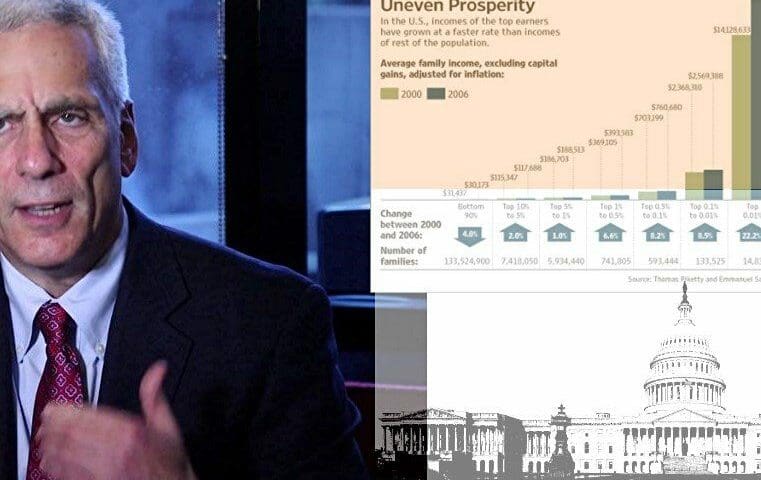
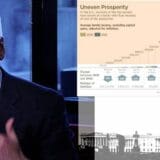
When Jared Bernstein recently sat down with Capital & Main, he had just been chosen as chair of the National Employment Law Project’s board of directors, while continuing his roles as a senior fellow at the Center on Budget and Policy Priorities, and as a frequent commentator on MSNBC and CNBC. Picked in 2009 by Joe Biden to be the Vice President’s top economic advisor, Bernstein had already distinguished himself as a passionate critic of inequality during his long tenure at the Economic Policy Institute, one of the country’s leading think tanks. His views on economic issues were well to the left of Obama’s and the rest of the President’s team, ensuring that progressive ideas would get a hearing inside the White House as the administration wrestled with the worst downturn since the Great Depression.
While Obama and his advisors succeeded in reversing the Great Recession’s massive job losses and saving the bacon of the financial industry,
» Read more about: Watch Now: Jared Bernstein on Inequality & Lip-Syncing Republicans »
In 2009, as the U.S. economy teetered on the brink of catastrophe, a newly elected Barack Obama leaned heavily on the counsel of a small circle of experts. Perhaps the most unlikely member of Obama’s inner sanctum, which included Larry Summers, Timothy Geithner, Christina Romer and Peter Orszag, was Jared Bernstein, a meditation devotee and professionally trained musician with a PhD in social welfare.
Chosen by Joe Biden to be the Vice President’s top economic advisor, Bernstein had distinguished himself as a passionate critic of inequality during his long tenure at the Economic Policy Institute, one of the country’s leading think tanks. His views on economic issues were well to the left of Obama’s and the rest of the President’s team, ensuring that progressive ideas would get a hearing inside the White House as the administration wrestled with the worst downturn since the Great Depression.
While Obama and his advisors succeeded in reversing the Great Recession’s massive job losses and saving the bacon of the financial industry,
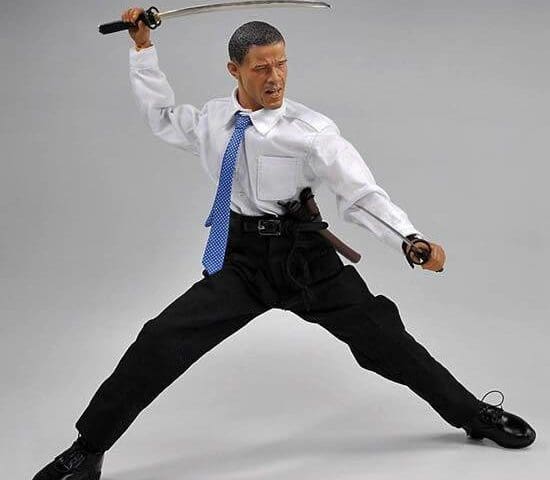

Occasionally, President Barack Obama reminds us that he was once a community organizer.
In his interview last Monday night with BET News, Obama said that he had invited some people who have been organizing protests against police misconduct to meet with him at the White House last week.
“Because the old adage, power concedes nothing without a fight — I think that’s true,” Obama said.
Obama was closely paraphrasing a statement by the great abolitionist Frederick Douglass that is well-known among community organizers and activists: “Power concedes nothing without a demand.”
This is not a phrase that most politicians would be familiar with. Obama probably first heard Douglass’ words during his three years as a community organizer in Chicago during the 1980s. Douglass’ famous one-liner was actually part of a speech he gave on August 3, 1857 in Canandaigua,
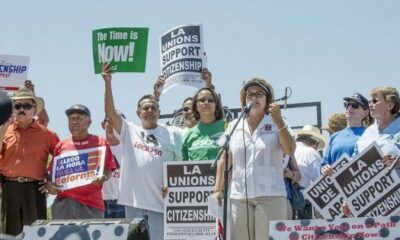

Nearly a decade ago, L.A. labor leader María Elena Durazo organized the Immigrant Workers Freedom Ride, a national caravan that brought immigrants and their supporters around the country to Washington, D.C., to push for immigration reform. In the ensuing years, there has been much talk but no action on extending legal protections to the country’s millions of undocumented immigrants.
All that changed yesterday, when President Barack Obama announced that he would sign an executive order granting temporary protection to as many as 5 million immigrants. Advocates were elated, while critics sharpened their knives and prepared for a PR counteroffensive.
Capital & Main spoke by phone with Ms. Durazo this morning shortly after she arrived in Las Vegas to join the President as he signs the executive order into law.
Capital & Main: What do you think of President Obama’s executive order granting temporary protection to undocumented immigrants?
» Read more about: Immigration Advocate María Elena Durazo on Obama’s Executive Order »
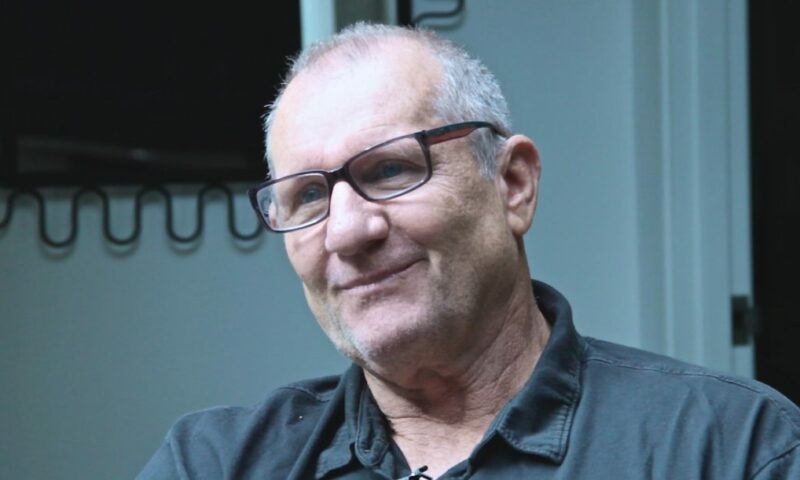

Capital & Main recently sat down with actor Ed O’Neill, best known for his role as Al Bundy in the Fox TV Network sitcom, Married With Children, and currently starring in ABC’s award-winning comedy, Modern Family, which will be honored in December at the Los Angeles Alliance for a New Economy’s 2014 City of Justice Awards Dinner.[divider]
What are your thoughts on the direction of the country after this last election?
I voted — I had to vote absentee because I was working. But these midterm elections are always puzzling to me because usually not many people come out for the vote. But obviously the country goes back and forth about so many things. I personally think Obama’s doing a pretty good job. Then again, I don’t follow it every day. For me,
» Read more about: Ed O’Neill: An Interview With a Modern Family Man and Union Guy »

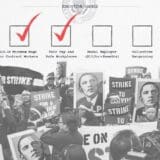
On Thursday, Americans earning low wages from businesses that contract with the federal government walked off the job to urge President Obama to do “more than the minimum” by signing executive orders that ensure workers receive living wages, adequate benefits and a voice on the job.
The organizers of the campaign, Good Jobs Nation, released a report earlier this week explaining why this change is necessary. As one of the nation’s largest employers, the federal government funds nearly two million poverty-wage jobs that pay less than $12 per hour. Unfortunately, many of these workers never receive any benefits such as paid sick leave and are forced to rely on public assistance, which costs more to taxpayers. We already know these same low-wage conditions wreak havoc on state and local economies. Governments may think they are getting a great deal when they outsource services, but when federal contractors fail to pay living wages to Americans providing essential functions,
» Read more about: Low-Wage Contract Workers: Obama Must Do More »
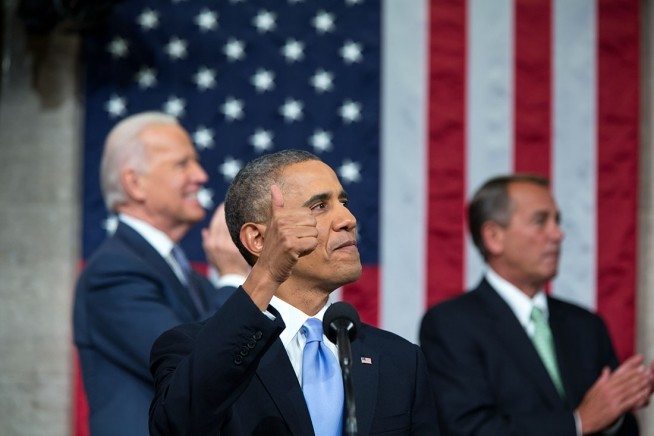
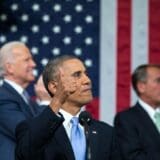
There was something tantalizing about Barack Obama’s State of the Union speech last night. When was the last time an American president talked about the simple human cruelty of our Dickensian sick leave and maternity policies? Or told CEOs to just do the right thing and raise wages for their workers?
What made Obama’s speech compelling is that he did more than just issue platitudes — he announced his decision to use executive authority to increase the pay of workers employed by companies that contract with the federal government. That will mean a nearly $3 an hour raise for hundreds of thousands of people. In an era of Tea Party-engineered partisan gridlock over pretty much everything, that’s nothing less than a seismic shift.
So why didn’t the State of the Union address leave me popping the champagne and toasting to an impending economic realignment that would reverse the nation’s slide back to the same levels of inequality we faced before the Depression?
» Read more about: Obama’s Speech: So Close and Yet So Far »
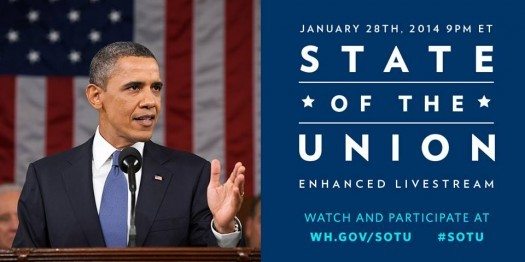
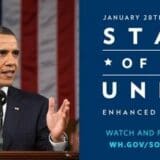
Last week, the U.K. publication The Guardian used an interesting anecdote to describe the key finding of an Oxfam report on global inequality: The world’s 85 richest people now own more wealth than the planet’s poorest 3.5 billion people. All of the world’s wealthiest individuals, Guardian writer Graeme Wearden noted, “could squeeze onto a single double-decker” bus.
The ironic image of the super-rich riding a humble public bus is an apt metaphor for the socioeconomic quandary facing America before President Obama makes his 2014 State of the Union address tonight. Underinvestment in job creation, training, education and public services like transportation put middle-class success out of reach for many Americans, while at the other end of the spectrum, wealth has been concentrated in very few hands.
President Obama’s speech ought to address the central problems of economic inequality and deficit of opportunities and services for many Americans.